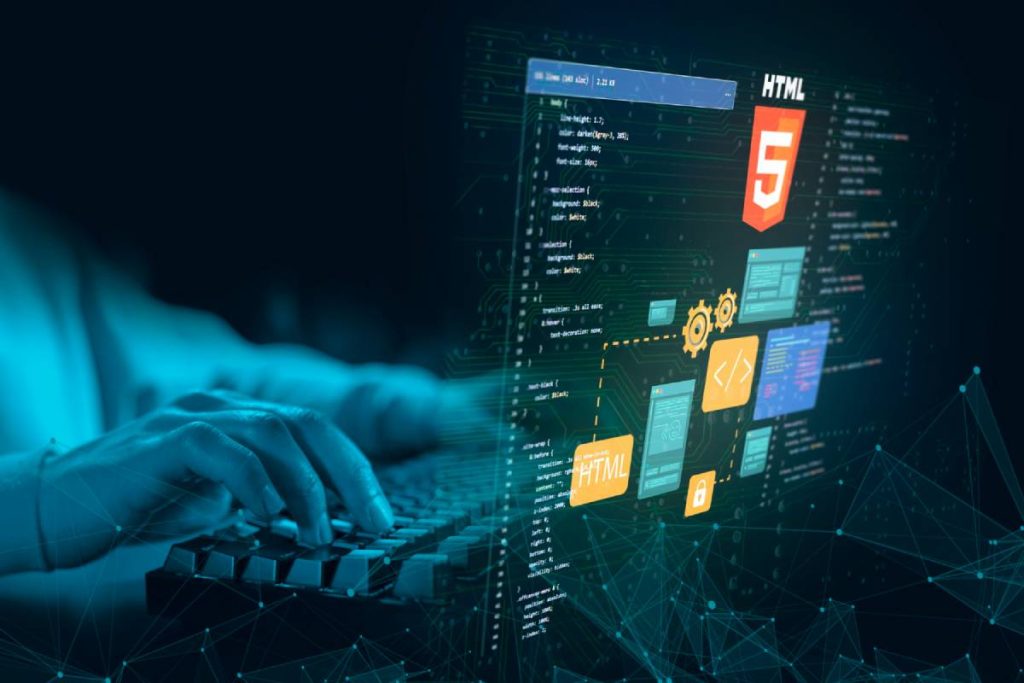The Integration of AI in Software Development
In recent years, AI has become a driving force in software development, revolutionizing how applications are built, tested, and optimized. With the increasing complexity of software systems and the growing need for faster development cycles, AI offers powerful tools to streamline processes, improve quality, and reduce human error. From intelligent code assistants to automated bug detection, artificial intelligence is transforming the way developers approach their work. This shift not only enhances the productivity of developers but also leads to the creation of more innovative and efficient solutions. As the capabilities of AI continue to grow, its impact on software development will only become more profound, leading to the automation of more tasks and the enhancement of decision-making processes.
AI-Powered Code Generation and Optimization
One of the most significant ways AI is transforming software development is through automated code generation and optimization. AI-driven tools can now write code based on natural language descriptions, significantly speeding up the development process. These tools leverage machine learning algorithms to analyze existing codebases, understand coding patterns, and generate efficient code that adheres to best practices. This not only saves time but also reduces the likelihood of errors that often occur during manual coding. Moreover, AI can optimize existing code, identifying bottlenecks and suggesting improvements to enhance performance and scalability. The integration of AI in code generation and optimization allows developers to focus more on high-level tasks, fostering creativity and innovation while improving overall efficiency.
AI in Software Testing and Quality Assurance
Software testing and quality assurance are critical aspects of software development, and AI is playing an increasingly vital role in enhancing these processes. Traditionally, testing was a manual and time-consuming task, involving extensive test case creation, execution, and bug fixing. However, with AI-powered testing tools, developers can now automate repetitive tasks such as regression testing, performance testing, and load testing. These tools use machine learning algorithms to identify patterns, predict potential issues, and even suggest fixes for bugs. By utilizing AI in testing, software developers can accelerate the release cycles and improve the quality of their applications, ensuring that the software performs reliably and efficiently across various platforms. The future of software testing is undoubtedly intertwined with AI, as it continues to push the boundaries of automation and efficiency.
AI-Driven User Experience Design
Another area where AI is making significant strides is in user experience (UX) design. AI tools can analyze user behavior and preferences to create personalized and adaptive user interfaces. These tools learn from user interactions, automatically adjusting elements such as layout, content, and navigation to optimize the overall experience. By using AI in UX design, developers can create software that better meets the needs and expectations of users, offering intuitive and engaging experiences. This level of personalization goes beyond static design templates and allows for dynamic, data-driven user interfaces that improve usability and satisfaction. As AI continues to evolve, its influence on software development will expand, with more advanced capabilities in user-centered design.
AI in Software Deployment and Maintenance
The role of AI in software development extends beyond the initial creation of an application and into deployment and maintenance. AI-powered tools can help automate deployment pipelines, ensuring that new versions of software are rolled out efficiently and without errors. By monitoring application performance in real time, AI systems can also detect potential issues and trigger alerts before they affect users. In maintenance, AI can predict when software components need updating, performing automatic fixes or suggesting improvements based on usage patterns and feedback. This proactive approach reduces downtime and enhances software reliability, allowing developers to maintain high-quality applications with minimal manual intervention.
Improved Collaboration with AI-Powered Project Management Tools
AI is also changing how development teams collaborate and manage their projects. AI-powered project management tools can automate routine administrative tasks, such as scheduling meetings, assigning tasks, and tracking progress. These tools can analyze team performance and identify potential bottlenecks or inefficiencies, offering suggestions on how to optimize workflows. By using AI to manage tasks and streamline communication, development teams can focus more on solving complex problems and delivering high-quality software. The ability to integrate AI into project management also ensures that developers have the resources they need, at the right time, to keep projects on track and aligned with business goals. As AI continues to improve, it will play a crucial role in enhancing teamwork and productivity in software development.
The Future of AI in Software Development
Looking ahead, the potential for AI in software development is limitless. As AI technology continues to advance, it will enable even more sophisticated capabilities, such as natural language processing for more intuitive code generation and deeper integration into cloud computing platforms. In the future, we can expect AI to become an even more integral part of the development lifecycle, from ideation to deployment. Developers will rely on AI for faster and more accurate solutions, empowering them to focus on creative and complex tasks while leaving repetitive and mundane tasks to automated systems. As AI becomes more advanced, its transformative impact on software development will redefine how we build, test, and deploy software, leading to a more efficient, dynamic, and user-centric software industry.
Conclusion
AI is undoubtedly transforming the software development industry, providing developers with powerful tools that enhance every aspect of the development lifecycle. From code generation and optimization to testing, UX design, deployment, and maintenance, AI is streamlining processes and improving efficiency. As the technology continues to evolve, the role of AI in software development will only grow, offering new opportunities for innovation and enhancing the overall quality of applications. As businesses continue to adopt AI-driven solutions, the future of software development looks promising, with faster development cycles, more personalized user experiences, and improved software performance.



